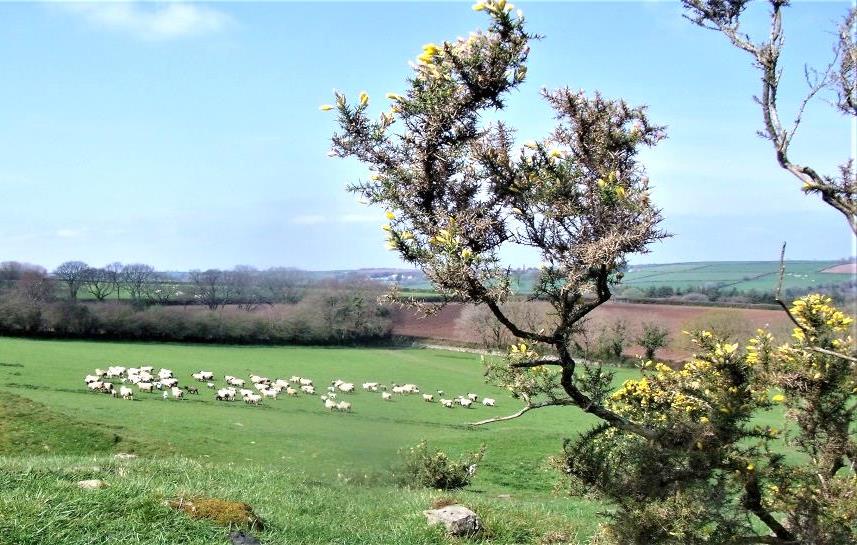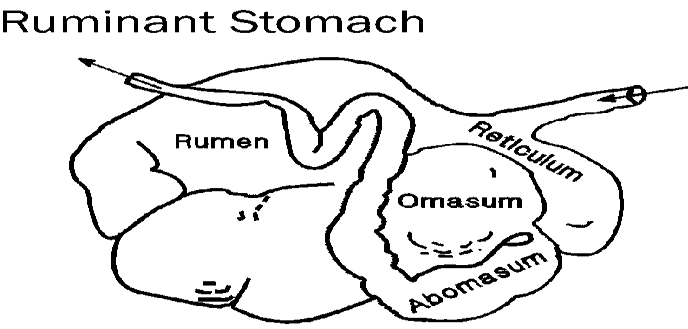Driving down Luckett Hill on this bright morning, another of my favourite walks lie ahead, but I missed it last year due to a holiday so I was keen to re-acquaint myself with all there is to see. This is not one of our usual walks led by a trained Walk & Talk leader, but a walk that only occurs thanks to the Howlett family and is led by the farmer himself. Lambs can be born anytime between December and May, but for the Howletts the lambing season is around March/ April time so the lambing sheds were our first stop after we had all signed in. Along the way we just had to pause to admire an adorable black calf as this too had been born a few days earlier….. around the same time as this little lamb that to Ray’s delight, soon began sucking his finger mistaking it for a teat!

Once again it was Martin Howlett who took us for a 2 1⁄2 hour guided walk around just a small part of the 280 acre family farm while his brother Geoff toiled away elsewhere; their mum Edna is our oldest walker so of course she was never far away helping to answer questions throughout the morning.
With the farmyard behind us, field after field lie ahead with far-reaching views; a few Highland cattle were grazing quietly over to our left in just one of the fields. Shortly a hill had to be scaled where half way up Martin paused to point out what we could see in the distance while behind him some work was taking place to restore a damaged hedge. On the brow of the hill we reached a lone chimney which we were told was a former arsenic flue that once would have carried the fumes away from the mines near the village of Luckett.
Further on the newer walkers learnt all about the Miscanthus (elephant grass) but I had heard it before and had written about it previously so I stood back a bit this time just as I did at the interpretation board at the ruined Wheal Tom mine.
As I made my way through the gnarled Hawthorn trees towards the ruined structures, I spotted a broken bird’s egg on the ground and guessed from its size and colour that it was that of a Blackbird, but we didn’t see many birds today, just a few Buzzards and Rooks, but there was plenty of birdsong.

Around 60% of UK farmland is only suitable for growing grass so without sheep and cattle to graze it, British grassland would quickly become overtaken by scrub and coarse vegetation so sheep and cattle farming is the most suitable way to convert this land into healthy food that our growing population can eat. Some of the fields we crossed were devoid of any animals to give the grass time to recover, but already young Sycamore seedlings were sprouting in one field and lots of Spear Thistles in another.

I once mentioned to someone how sheep and cows always appear to be eating and was told that is because they have four stomachs to fill! However this statement is not entirely correct, it is more accurate to say that each of these animals has one stomach which consists of four compartments.
Grasses and other roughage that ruminants eat are hard to break down and digest, which is why they have these specialized compartments known as the rumen, reticulum, omasum, and abomasum. Basically, as each animal eats, billions of enzymes, microbes, and digestive juices combine to begin to break down the food with each compartment in their stomach having a special function that helps to digest these tough foods. We often hear that cows chew the cud, but I then wondered ‘what exactly is cud’. Again Google came to my aid and explained that cud is partly digested food that is returned from the first stomach of ruminants to the mouth for further chewing. Ugh!

Throughout this beautiful spring morning with its gentle breeze, the ewes with their lambs were grazing contentedly, heads down until they spotted us approaching then they scattered in all directions whilst bleating loudly. The Howlett family are doing a splendid job as they carry out the oldest profession in the world which began when the hunter gatherers began to farm plants and animals. Long may they continue for generations to come, not just working extremely hard, but by spreading the word as they show different groups around their farm. Thank you to the entire family for all you do!